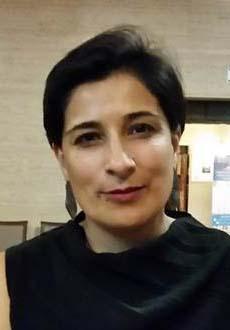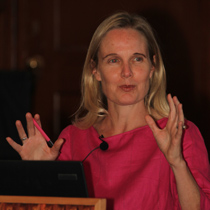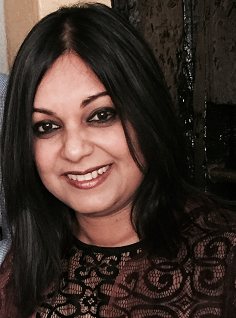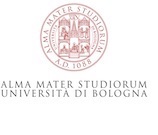|
The city-state, in its ancient form, became the site of numerous ideas of the political, both in terms of the political structures of the state, and the constitution of the political as such. Classic texts over the last couple of centuries have created, in the modern era, ideas of the city as political unit in order to make sense of the modern world, for example Numa Denis Fustel de Coulanges’ The Ancient City: A Study on the Religion, Laws, and Institutions of Greece and Rome; or the spectral presence of a palimpsestic city beneath another, like the seven cities of Delhi.
In this course, we will look to the spectral forms of cities and the notions of the political they contain through a particular form: that of the divided city. Nicole Loraux’ book The Divided City: Memory and Forgetting in Ancient Athens works with concepts of stasis or division, strife, even civil war, that mark the divisions in play at the heart of the concept of democracy. Such divisions, between full citizens and, for example, women, slaves, those perceived as foreigners, create the need for amnesty & amnesia on which, she suggests, forms of the political are founded in the city-state. In ancient and modern times, these divisions may be literal partitions, segregation, apartheid, acknowledged and unacknowledged stratifications, post-civil war amnesty, or disenfranchisement.
Developing this idea, we will look to the idea of the divided city and the forms of haunting and spectral insistence that accompany the notion of the political (and sometimes futurity) that emerge with it.
 Ranjana Khanna is Professor of English, Women's Studies, and the Literature Program at Duke University. She works on Anglo- and Francophone Postcolonial theory and literature, and Film, Psychoanalysis, and Feminist theory. She has published widely on transnational feminism, psychoanalysis, and postcolonial and feminist theory, literature, and film. She is the author of Dark Continents: Psychoanalysis and Colonialism (Duke University Press, 2003) and Algeria Cuts: Women and Representation 1830 to the present (Stanford University Press, 2008.) She has published in journals like Differences, Signs, Third Text, Diacritics, Screen, Art History, positions, SAQ, Feminist Theory, and Public Culture. Her current book manuscripts in progress are called: Asylum: The Concept and the Practice and Technologies of Unbelonging. Ranjana Khanna is Professor of English, Women's Studies, and the Literature Program at Duke University. She works on Anglo- and Francophone Postcolonial theory and literature, and Film, Psychoanalysis, and Feminist theory. She has published widely on transnational feminism, psychoanalysis, and postcolonial and feminist theory, literature, and film. She is the author of Dark Continents: Psychoanalysis and Colonialism (Duke University Press, 2003) and Algeria Cuts: Women and Representation 1830 to the present (Stanford University Press, 2008.) She has published in journals like Differences, Signs, Third Text, Diacritics, Screen, Art History, positions, SAQ, Feminist Theory, and Public Culture. Her current book manuscripts in progress are called: Asylum: The Concept and the Practice and Technologies of Unbelonging.
 Sarah Nuttall is the Director of WiSER since January 2013, where she was a prominent Senior Researcher from 2000 until 2010. Born in South Africa and educated at the Universities of (then) Natal and Cape Town, Sarah won a prestigious Rhodes Scholarship to read for a D.Phil. at Oxford. A literary scholar by training, Sarah’s varied research interests and prolific publication record have established her as a leading cultural commentator and critic as well as one of the leading scholars of her generation. She has lectured at the University of Stellenbosch and, for the past five years, has been a Visiting Professor at Yale University and Duke University. Sarah has edited several path-breaking books; her influential monograph, Entanglement: Literary and Cultural Reflections on Post-apartheid, explores mutuality, transgression and embodiment in contemporary South Africa. Sarah has published in various journals including in Cultural Studies, Interventions: International Journal of Postcolonial Studies, Journal of South African Studies, Public Culture, Third Text and Social Dynamics. She is a member of the editorial boards of Journal of Southern African Studies, Humanity, Cultural Studies, Social Dynamics, English Studies in Africa, and English Academy Review. Sarah Nuttall is the Director of WiSER since January 2013, where she was a prominent Senior Researcher from 2000 until 2010. Born in South Africa and educated at the Universities of (then) Natal and Cape Town, Sarah won a prestigious Rhodes Scholarship to read for a D.Phil. at Oxford. A literary scholar by training, Sarah’s varied research interests and prolific publication record have established her as a leading cultural commentator and critic as well as one of the leading scholars of her generation. She has lectured at the University of Stellenbosch and, for the past five years, has been a Visiting Professor at Yale University and Duke University. Sarah has edited several path-breaking books; her influential monograph, Entanglement: Literary and Cultural Reflections on Post-apartheid, explores mutuality, transgression and embodiment in contemporary South Africa. Sarah has published in various journals including in Cultural Studies, Interventions: International Journal of Postcolonial Studies, Journal of South African Studies, Public Culture, Third Text and Social Dynamics. She is a member of the editorial boards of Journal of Southern African Studies, Humanity, Cultural Studies, Social Dynamics, English Studies in Africa, and English Academy Review.
 Debjani Ganguly is Professor of English and the Director of the Institute of the Humanities and Global Cultures at the University of Virginia. She works in the fields of world literature, postcolonial studies and the South Asian Studies. Her research interests include the contemporary Anglophone novel, literary forms in the new media age, literature and human rights, caste and dalit studies, language worlds in colonial/postcolonial South Asia, and Indian Ocean literary worlds from 1750-1950. In recent years, Debjani has researched the links between globalism, information technology, ethnic violence and humanitarian connectivity through the genre of the novel, the result of which is a book with Duke UP entitled This Thing Called the World: The Contemporary Novel as Global Form (2016). She is the author of Caste, Colonialism and Countermodernity (2005) and coeditor of Edward Said: The Legacy of a Public Intellectual(2007) and Rethinking Gandhi and Nonviolent Relationality: Global Perspectives (2007). Debjani is the general editor of a recently commissioned, multi-volume Cambridge History of World Literature, and co-edits, with Ato Quayson and Neil Ten Kortenaar, the Cambridge Journal of Postcolonial Literary Inquiry.Debjani has held visiting fellowships at the University of Chicago, University of Cambridge, University of Oxford, and University of Wisconsin-Madison. She is a Life Fellow of Clare Hall, Cambridge, Fellow of the Royal Asiatic Society of Great Britain and Ireland, and Member on the International Advisory Boards of the Harvard Institute for World Literature, the Consortium of Humanities Centers and Institutes (CHCI), and the Bologna-Duke-UVA Academy of Global Humanities and Critical Theory. Debjani Ganguly is Professor of English and the Director of the Institute of the Humanities and Global Cultures at the University of Virginia. She works in the fields of world literature, postcolonial studies and the South Asian Studies. Her research interests include the contemporary Anglophone novel, literary forms in the new media age, literature and human rights, caste and dalit studies, language worlds in colonial/postcolonial South Asia, and Indian Ocean literary worlds from 1750-1950. In recent years, Debjani has researched the links between globalism, information technology, ethnic violence and humanitarian connectivity through the genre of the novel, the result of which is a book with Duke UP entitled This Thing Called the World: The Contemporary Novel as Global Form (2016). She is the author of Caste, Colonialism and Countermodernity (2005) and coeditor of Edward Said: The Legacy of a Public Intellectual(2007) and Rethinking Gandhi and Nonviolent Relationality: Global Perspectives (2007). Debjani is the general editor of a recently commissioned, multi-volume Cambridge History of World Literature, and co-edits, with Ato Quayson and Neil Ten Kortenaar, the Cambridge Journal of Postcolonial Literary Inquiry.Debjani has held visiting fellowships at the University of Chicago, University of Cambridge, University of Oxford, and University of Wisconsin-Madison. She is a Life Fellow of Clare Hall, Cambridge, Fellow of the Royal Asiatic Society of Great Britain and Ireland, and Member on the International Advisory Boards of the Harvard Institute for World Literature, the Consortium of Humanities Centers and Institutes (CHCI), and the Bologna-Duke-UVA Academy of Global Humanities and Critical Theory.
|





 Ranjana Khanna
Ranjana Khanna Sarah Nuttall
Sarah Nuttall Debjani Ganguly
Debjani Ganguly